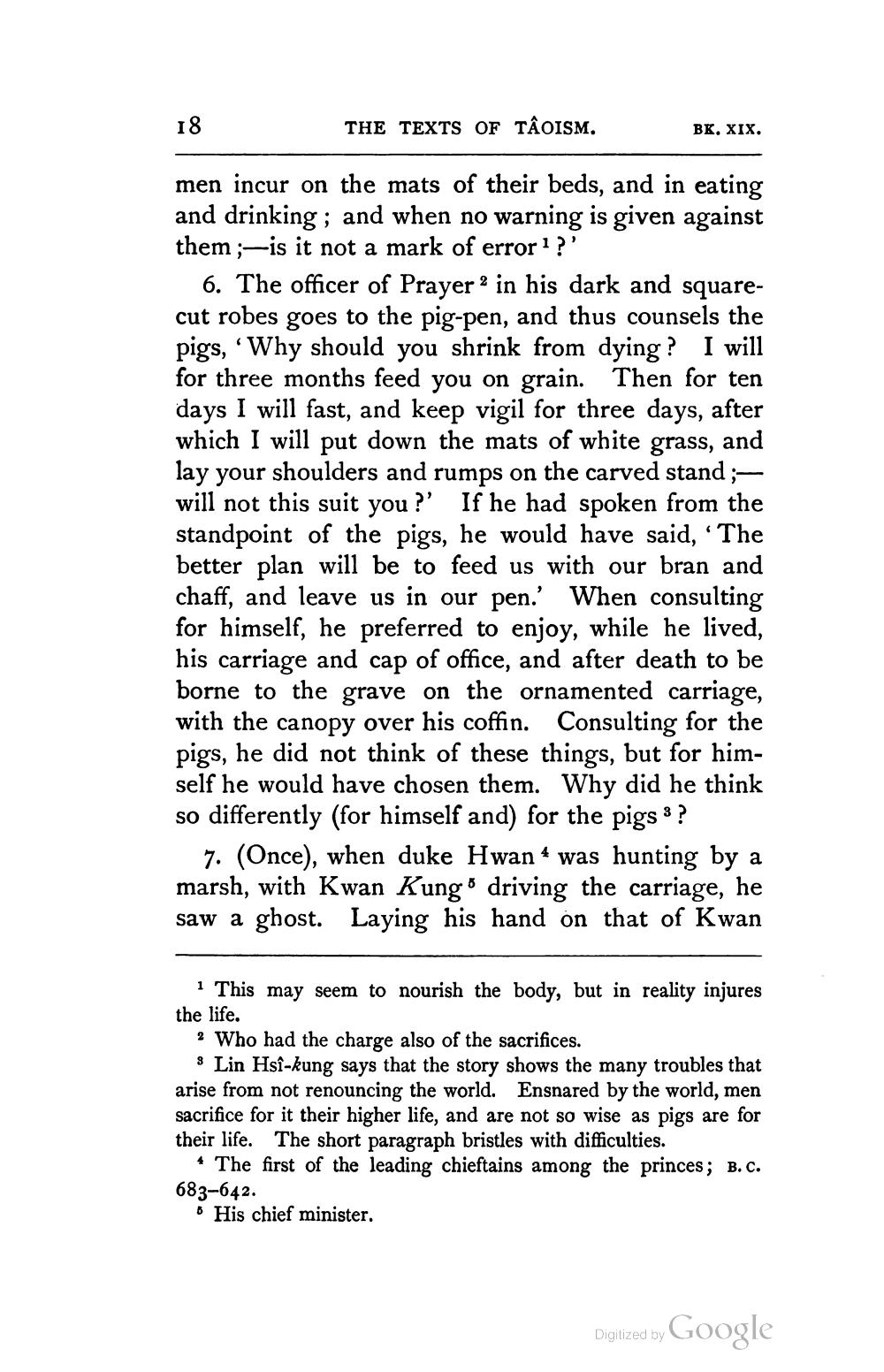________________
THE TEXTS OF TÂOISM.
BK, XIX.
men incur on the mats of their beds, and in eating and drinking; and when no warning is given against them ;—is it not a mark of error 1 ?'
6. The officer of Prayer 2 in his dark and squarecut robes goes to the pig-pen, and thus counsels the pigs, “Why should you shrink from dying? I will for three months feed you on grain. Then for ten days I will fast, and keep vigil for three days, after which I will put down the mats of white grass, and lay your shoulders and rumps on the carved stand ;will not this suit you?' If he had spoken from the standpoint of the pigs, he would have said, 'The better plan will be to feed us with our bran and chaff, and leave us in our pen.' When consulting for himself, he preferred to enjoy, while he lived, his carriage and cap of office, and after death to be borne to the grave on the ornamented carriage, with the canopy over his coffin. Consulting for the pigs, he did not think of these things, but for himself he would have chosen them. Why did he think so differently (for himself and) for the pigs 3 ?
7. (Once), when duke Hwan * was hunting by a marsh, with Kwan Kung driving the carriage, he saw a ghost. Laying his hand on that of Kwan
1 This may seem to nourish the body, but in reality injures the life.
2 Who had the charge also of the sacrifices.
s Lin Hsî-kung says that the story shows the many troubles that arise from not renouncing the world. Ensnared by the world, men sacrifice for it their higher life, and are not so wise as pigs are for their life. The short paragraph bristles with difficulties.
* The first of the leading chieftains among the princes; B.C. 683-642.
• His chief minister.
Digitized by Google




